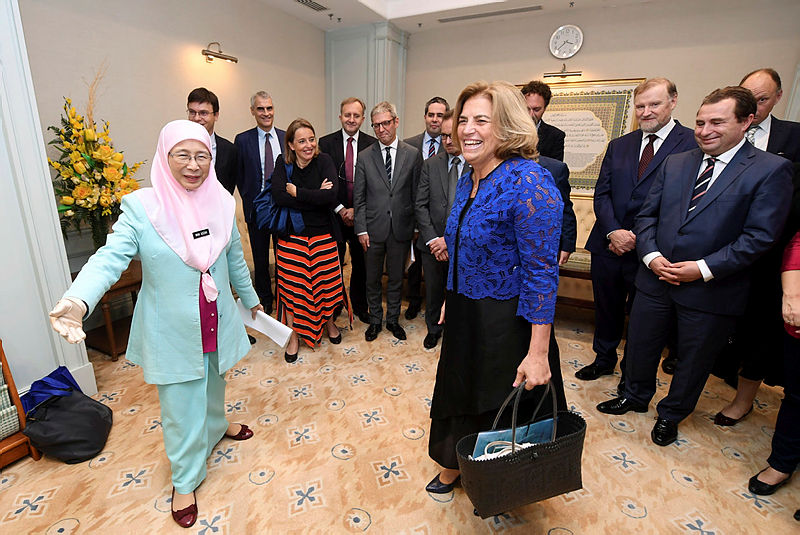KUALA LUMPUR: The European Union (EU) is optimistic that its relationship with Malaysia will remain strong even in the midst of the discord regarding the palm oil issue.
EU Ambassador and Head of Delegation to Malaysia Maria Castillo Fernandez said while currently there is no ban of the palm oil going into the EU, it is open to dialogues with Malaysia in order to overcome their differences on the matter.
“Our relations is more than palm oil and we shouldn’t let it hurt the relationship that had been forged for so long. We have to look at the middle and long term solutions and we are always open to dialogues, listening to our partner in Malaysia,” she said.
She said this to Bernama International News Service during the Europe Day celebration here, on Wednesday. Europe Day is celebrated annually on May 9 by its 28 member states to mark the Schuman Declaration – signed on May 9 in 1950 – that gave birth to the European Union.
Malaysia and the EU had been at loggerheads over the latter’s proposed plan to restrict palm oil in biofuel starting 2021 and to completely phase it out by 2031.
The 28-member bloc had said that the cultivation of the crop had led to deforestation and climate change. However, Malaysia refuted the claims, calling it misleading and economically detrimental to the industry, especially to some 650,000 oil palm smallholders in the country.
Malaysia is the world’s second largest palm oil producer after Indonesia.
Data from the Malaysian Palm Oil Board showed that the country exported a total of 1.91 million tonnes of palm oil to the EU in 2018, down by four per cent from 1.99 million tonnes recorded in 2017.
The EU is the second largest importer of Malaysian palm oil after India, buying 12% of the total palm oil produced in 2018.
Fernandez said the EU representatives in Malaysia will continue to engage with relevant authorities, oil palm smallholders and local communities besides visiting plantations to gain first-hand knowledge of the issue.
On another note, Fernandez said the EU will continue to support Malaysia’s democracy, it’s ongoing efforts on institutional reforms agenda as well as to improve its human rights standing among others.
Apart from the political, trade and economic sector, the EU collaborates with Malaysia and its civil society in a wide range of fields such as education, culture, environment, and sustainable development.
“We are Malaysia’s very close partner and we need to work for our relations and try to overcome the challenges like the palm oil issue.
“We are already doing much together and there’s many more we can do together,” she said. — Bernama














